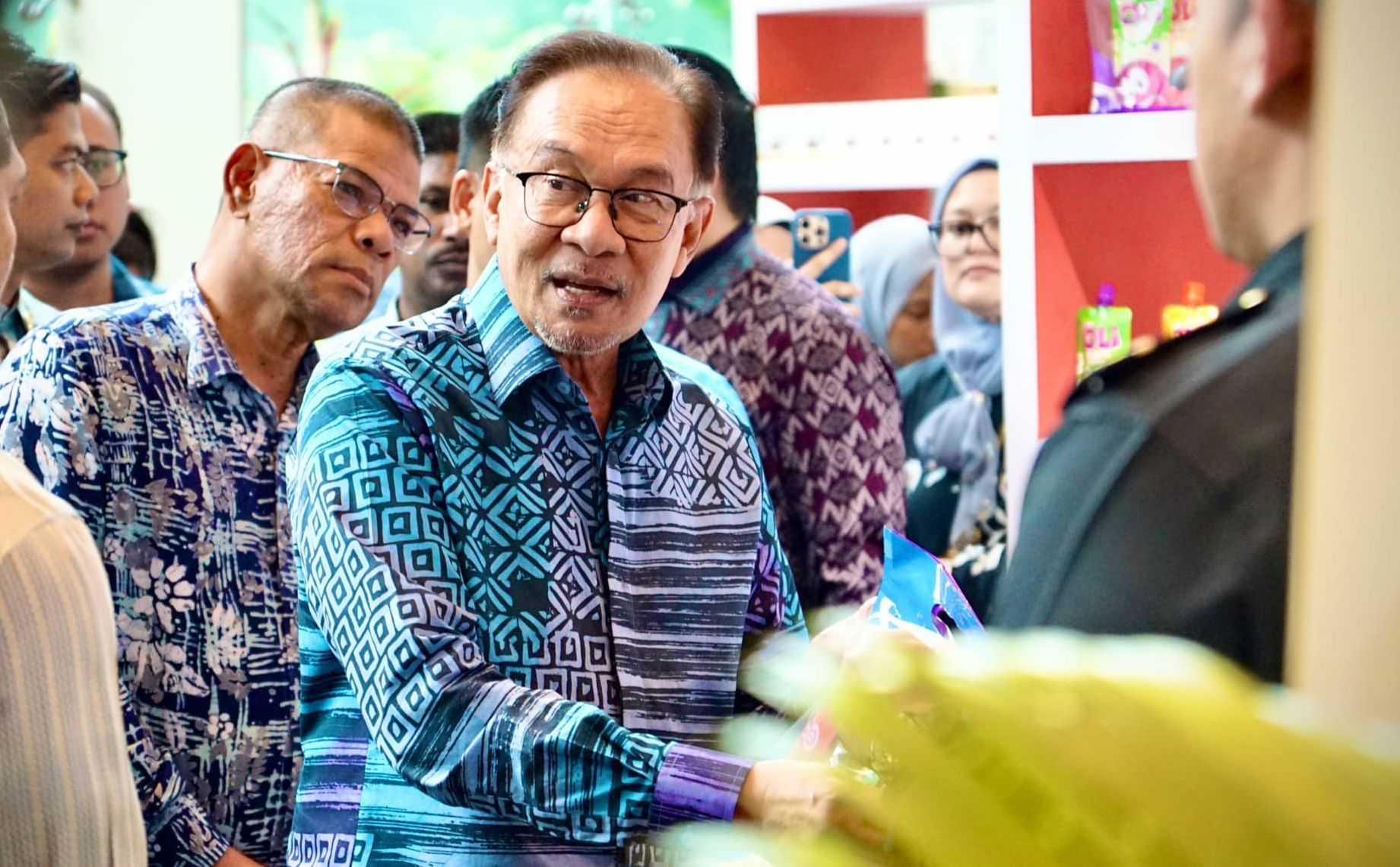Rights body schools Saifuddin after 'bizarre' defence of citizenship law changes
Former MP and prominent lawyer N Surendran blasts home minister's reasoning on Rohingya refugees.
Just In
Home Minister Saifuddin Nasution's recent arguments defending the government's controversial amendments to citizenship provisions in the constitution have been condemned by a vocal rights group, calling his statements in recent days as "increasingly bizarre and far-fetched".
Saifuddin reportedly claimed that Rohingya refugees were "running away" after giving birth in hospitals to justify the amendments, which abolish the current provision of automatic citizenship for abandoned children and foundlings.
"Saifuddin’s excuses are unlawful, irrational, inhumane and impractical. The minister appears to treat abandoned babies like some kind of national security threat or a dangerous enemy," said prominent lawyer and former MP N Surendran, head of rights group Lawyers for Liberty (LFL) which is among the many groups protesting the proposed changes to be tabled by Saifuddin at the Parliament this week.
"Where else can an abandoned child found anywhere in Malaysia go? The infant must live here and be a citizen of this country. Every civilised country in the world has similar provisions in their law," he added.
The proposed changes have alarmed rights groups including those fighting for the rights of thousands of stateless children in the country, who are denied citizenship despite being born to Malaysian parents.
The proposed changes to citizenship laws, which needed two-thirds support from MPs, are bundled with the much welcome constitutional amendment giving Malaysian mothers married to foreigners equal rights when it comes to automatic citizenship for their children born abroad.
At the heart of the protests is an amendment to remove the automatic granting of citizenship to abandoned babies, or orphans born in the country, whose mother or parents cannot be traced. Under the amendment, those previously entitled to citizenship would be at the mercy of the home minister.
Critics say that despite the current provisions for automatic citizenship, thousands of people suffer in silence as stateless people - denied public health services, education and job opportunities - and that orphans and abandoned children, many of whom born out of wedlock, are victimised for life.
They say repealing the provision will create a large new class of stateless babies, orphans and other children who will be denied citizenship if this safety net us removed.
That safety net was the basis for a successful constitutional challenge by a stateless teenager in 2021, in which Chief Justice Tengku Maimun Tuan Mat, presiding over a five-member Federal Court bench, ordered the government to issue a new birth certificate and register him as a citizen.
Tengku Maimun said the teenager was entitled to citizenship by virtue of his birth in Malaysia.
She also said as he was found abandoned in a government hospital in Kuala Lumpur, he was presumed to have been born to a mother who was a permanent resident, which met the constitutional requirements.
Despite mounting protests, Prime Minister Anwar Ibrahim has defended the amendments, but has often dodged questions on the controversial parts by highlighting only the amendment on equal rights for Malaysian mothers.
 Surendran (right) said by abolishing automatic citizenship for abandoned babies, thousands of adults in Malaysia who are eligible for citizenship would continue to live as stateless people.
Surendran (right) said by abolishing automatic citizenship for abandoned babies, thousands of adults in Malaysia who are eligible for citizenship would continue to live as stateless people.
He said the argument with the Rohingyas showed Saifuddin's "ignorance of how the constitutional provisions operate".
"Simply put, if the identity of the parents is known to be Rohingya, the child will anyway not qualify for Malaysian citizenship under the current provisions. Courts have been strict about this.
"If on the other hand, the identity of the parents are not known, the abandoned child will be presumed to be Malaysian," he said, adding that it was the humane thing to do with an abandoned child whose origins are not traceable.
"To do otherwise will be to hurl the child onto an existence in the margins of society, which is cruel and of no benefit to the country’s economy or interests."
Umbilical cord
Surendran also rebuked Saifuddin for another claim that a child without an umbilical cord would not be considered an abandoned child.
"This kind of thinking also reflects the mindset of the home ministry, which appears to be to exclude foundlings and children from grant of citizenship."
Surendran said the government could still stop its plan.
"It is not too late to withdraw these amendments, and proceed only with the amendments related to the problem of children born to overseas Malaysian mothers. To do otherwise, would impose untold suffering upon innocents."
Subscribe to our newsletter
To be updated with all the latest news and analyses daily.
